|
Below is an info-graphic, of which I just created in order to show figures of just how many people around the world do not have access to clean water supplies.
1 Comment
With poverty everything becomes frightful because as the saying goes, ' a person never knows the worth of water till the well is dry.' " - Thomas Fuller The EPIDEMIC of PovertyToday, we live in a world in which some people believe it is a normalcy to have the most advanced and distinguished commodities of life. However, this is not true for everyone because there are millions of people around the world, living under poverty, who would give anything in order to have the basic needs of life. As validation of this point, it has been recorded that more than 80 percent of the world’s population lives in countries where income differentials are widening. Therefore, it only seems reasonable that one may ask as to how has this division of lifestyles has occurred? Rather how is it that one person in America can live a life without ever having to salvage for scraps of food or live in a hut made of trash when so frequently these standards of living have become the only means by which another person in Africa lives to see another day? The answer to this question and more can be answered as one learns just how serious the crisis of poverty in has become. Poverty is indeed a national crisis and global epidemic. In fact, Global Issues, a website dedicated to supporting global problems, reported in March 2013 that "at least 80% of humanity lives on less than $10 a day." In addition this website also argued the notion that the poorest people on earth also have less access to health, education and other services thus leaving them with problems of hunger, malnutrition and disease. As this problem continues to degrade the lives of individuals, it is crucial that we respond with conviction and purpose towards resolving these unfortunate and shameful facts of life about poverty in our time. The Relationship Between Poverty and Water Access IN AfricaRalph Waldo Emerson, an American lecturer and poet during the mid-19th century once said that "Cause and effect are two sides of one fact." These profound words are very prevalent as they relate to issues occurring in modern Africa. Indeed the cause of poverty and effect of no accessible water supplies are the two sides of one fact that Africa must change in order to survive and flourish. In other words, in Africa poorer areas have no access to clean water supplies and consequently regions in Africa that have limited water supplies are quickly becoming poor. Therefore it is evident that poverty and water access are and always will be inextricably linked. To illustrate this point, the Global Issues website estimated that "some 660 million people in Africa are considered to be poor,"and of those 660 million people in poverty, "585 million have inadequate access to water as well as lack basic sanitation." Thus, in my opinion, the best way to solve poverty in Africa will be to provide accessible water for individuals throughout Africa. Take Action Today!All too often the poor are marginalized from society and have little representation or voice in public and political debates. However, this trend can stop with your help. There are many avenues of change that you can pursue as a means for helping people in Africa and all over the world live resourceful, healthy, and happy lives.
Water is the driving force of all nature." One of the most formidable dilemmas facing many countries around the world is lacking access to clean water supplies. However this global crisis can be resolved as we make efforts to analyze the demand of tourism and its’ influence on water usage, finance and thereby provide access to sanitized water sources, create amendments that will ensure water as a human right, and alleviate the biases of gender responsibilities on water retrieval. These criterion entail the barometers and objectives of many organizations as well as individuals; in hopes for promoting the equity and likewise equality of accessible clean water supplies in all countries both large and small, developed and developing.
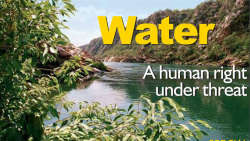 With the increasing numbers of communities around the world lacking sufficient water supplies, the push to classifying water as a basic human right is gaining momentum among a variety of stakeholders around the world. In fact, on July 8, 2010 the United Nations General Assembly approved that access to clean drinking water is an official basic human right - just like the right to food and the right to live without torture and racial discrimination. Moreover, with the establishment of water as a human right, water issues are quickly emerging as among the most pressing environmental and social concerns around the world. For instance, U.N. studies predict that two-thirds of the world's countries will face scarcity and water-stress by 2020. Millions every year fall ill to preventable water-borne diseases that cause 3.7 percent of all global deaths. Although a daunting task, the world does contain sufficient, clean freshwater for everyone’s basic personal and domestic needs. In closing, in relation to water as a human right, President John F. Kennedy said it best that “the rights of every man are diminished when the rights of one man are threatened.” Conservatism is not about leaving people behind. Conservatism is about empowering people to catch up, to give them the tools at their disposable that make it possible for them to access all the hope, all the promise, all the opportunity that America offers. Africa...A country in need of opportunities. 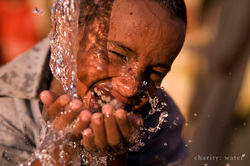 The country of Africa is desperately in need of accessible water. For instance, one international organization, the United Nations Department of Economic and Social Affairs, also known as the UNDESA reports that “in Sub Saharan Africa, 45% of the population used shared or unimproved facilities thus resulting in 25% of those residents practicing open defecation” (UNICEF, 2012). More importantly with increased access to water the UNDESA predicts that over some 2 million children would survive each year. Ultimately, such an affect would leave huge savings in health care costs and in time would influential factor in educated children and the African society at large. Gender equality is more than a goal in itself. It is a precondition for meeting the challenge of reducing poverty, promoting sustainable development and building good governance." Imagine a life without safe water flowing from your tap. Imagine if every morning you had to get up at the crack of dawn and walk for miles down uneven paths to the nearest water hole to collect your family's water.
Then imagine the state of the water, filthy, dirty with flies buzzing around and animals drinking at the same source. But you have no other choice. In many countries it would take you over six hours every day to collect enough water for your family. Having returned from this grueling journey you could start the rest of your day. This is the daily reality of life for many women and and young girls in developing countries. In Africa, the responsibility of collecting water again falls to women. For example, women often walk ten miles or more every day just to fetch water. Moreover, such a responsibility to fetch water limits their access to both educational and business opportunities. he tragedy is that, having spent so much time and effort in reaching a source of water, the water itself is often dirty, polluted and a health hazard. In fact, unclean water causes illnesses such as diarrhea and dysentery, which account for the deaths of thousands of women and children in Africa and worldwide. Please take action today in support for gender equality by breaking down gender roles. With your support we can be able to provide sustainable and localized water supplies to all communities in Africa. African Roots Foundation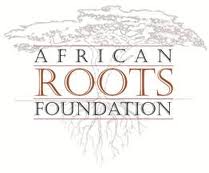 African Roots Foundation is a non-profit, community based, and developmental organization located in Tanzania and operated throughout East Africa. African Roots Foundation strives to improve the standard of living of community members whilst protecting the natural environment through the creation of small, sustainable projects. In addition, African Roots Foundation is dedicated to creating opportunities for self reliance and playing an active role in conserving natural resources through effective education, research, and healthy practices. As a proud advocate fro Eco-tourism and volunteerism, African Roots Foundation is a great example of an organization which emulates many sustainable principles. However the primary sustainable principles undertaken by African Roots Foundation include: 1. It should play an active role in conserving the natural resources which provide the visitors their experience. 2. It should promote moral and ethical responsibilities and behaviors towards the natural and cultural environment by all parties. 3. It should provide long term benefits -to the resource, to the local community, and to the industry. First, African Roots Foundation plays a significant role in conserving the natural resources of its environments. For instance, ARF builds their facilities and supplies using low impact and Eco-friendly materials, most of which are found and produced through local mines and wells. ARF, also preserves its natural resources by limiting its waste reduction. Unlike its competitors, African Roots Foundation uses recycled goods and bio-diesel vehicles and filtrates their water supplies so that they have reusable water. As case in point, ARF has partnered up with Safe Water Ceramics of East Africa to create dynamic water filters that are currently making their ways into the homes and rural areas of East Africa. These efforts seem small but dramatic illustrations of how African Roots Foundation conserves the natural resources in efforts to honor sustainable principles. Secondly, African Roots Foundation has a passion for promoting and establishing policies in which all parties are held responsible for preserving the cultural environment. This is accomplished through their collaboration with Bush2Beach Safaris. Together these organizations implement projects that meet the immediate needs of the communities. Moreover, they work on Sustainable Education and Development in association with local village leaders and representatives. Finally, African Roots Foundation and Bush2Beach Safaris instill sustainable behaviors to its community members because individuals are educating from toddler to adult, on the conservation of the environment and wildlife, health & HIV awareness. Finally, African Roots Foundation provides long term benefits to both the local communities and the tourism industry. For example, all of their projects provide additional income and employment through the promotion of fair trade and sustainable tourism in the local communities. Likewise, ARF's projects increase future opportunities and self-reliance by providing structured education and a health care system. Last but not least, African Roots Foundation is diligent in establishing fair trade of locally manufactured cultural crafts. In summary, all of these efforts are prime examples of how African Roots Foundation presents long term benefits to the resources, local communities and the tourism industry. Bush2Beach Safaris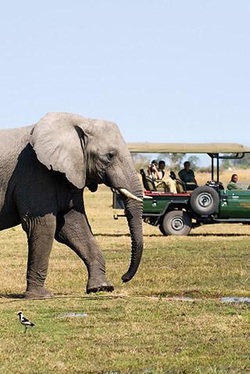 Bush2Beach Safaris is a licensed tour operator based in Arusha, Tanzania located and operated in East-Africa. Bush2Beach Safaris takes pride in designing custom made safaris that cater to your specific interests. However, more important is that Bush2Beach Safaris operates using many of the sustainable principles because of their close association and partnership with African Roots Foundation. With the help from ARF, Bush2Beach Safaris has aimed at providing sustainable infrastructure but also has enabled communities to initiate projects which which focus on providing both the immediate and the long term needs and opportunities for growth. Therefore, Bush2Beach Safaris combine true-life cultural experiences and the exchange of ideas in order to contribute in a very substantial, sustainable, active and unique way. Tourism demand in Africa significantly influences water usage in Africa. For example, the European Economic Agency reported that “a tourist staying in a hotel uses on average one third more water per day than a local inhabitant” (Kotios, Plageras, Galanos, Koutoulakis & Saratsis, 2009). This study validates the problem of poor water distribution in Africa. Another problem with tourism in Africa is that “many tourist areas hotels and other facilities have no own treatment plans and are not connected to any sewage system” (Kotios, Plageras, Galanos, Koutoulakis & Saratsis, 2009). This results in the pollution of surface and groundwater and negatively impacts the quality of freshwater as well as sea water. Overall, in order for water to be accessible to all African individuals containment of tourism pollution and water usage will be a crucial element.
BaoBAB - Alternative Roots To Travel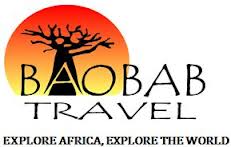 BAOBAB Travel is a UK-based tour operation focused on showing tourists a personalized representation of various destinations around Africa. BAOBAB Travel provides flexible travel service by tailor-making itineraries in order to suit every tourist's specific needs. In other words, BAOBAB packages are designed to show tourists the real places, nature, and cultures of Africa. Therefore, BAOBAB strives to avoid resorts that have been `manufactured' for tourists. In specific, BAOBAB introduces tourists to local communities and combine places that are 'off the beaten track' in addition to more popular 'must-see' destinations. The result of BAOBAB Travel is an experience that is unique, varied, exhilarating, relaxing and fulfilling and which leaves every tourist with a completely clear conscience of the unique regions of Africa. For more information about BAOBAB Travel visit their website at: http://www.baobabtravel.com/ BAOBAB - Responsible TravelBAOBAB Travel promotes responsible tourism and provides alternative forms of travel in Africa as a means to economically benefiting local communities, ensuring a sensitivity to local cultures and maintaining amble efforts to preserving the natural environments of Africa. Baobab Travel has four Fair Trade Tourism certified South Africa travel packages. As part of this process, as a company, they have been fully audited to prove their commitment to Fair Trade not only through trading & labor standards, but also through their Procurement and Economic, Corporate Social Responsibility, and Environmental Policies. Hence, this certification gives BAOBAB Travel establish forms of travel that are economically, ecologically, and socially sustainable. In the end, one can argue that BAOBAB Travel is a superb example of an organization which emulates many of the cornerstones for fair trade and responsible travel. FAIR WORKING CONDITIONS & FAIR PRICES - BAOBAB participants and employees are entitled to a fair share of income directly proportioned to their contribution to a specific tourism activity. In addition, employees are entitled to participate in decisions that concern them. INTEGRATION INTO THE LOCAL ECONOMY & REGIONAL DEVELOPMENT - BAOBAB respects human rights, culture and environment, by ensuring safe working conditions, gender equality, reduced consumption and protection of natural resources. FAIR TRADE PARTNERSHIPS BETWEEN ALL ACTORS IN TOURISM - BAOBAB requires ownership of businesses to have clearly defined outlines in which sharing of profits, benefits and losses are transparent. Similarly, service deliveries should be reliable and consistent and should provide basic safety and security for both the host and visitor. SUSTAINABLE RESOURCE USE AND ENVIRONMENTAL JUSTICE - BAOBAB increases knowledge through capacity building, sharing resources through partnerships, encouraging the responsible use of resources and reducing leakage through local purchasing and employment. For more information about BAOBAB's efforts for Fair Trade and Responsible Travel visit their webpage at: http://www.baobabtravel.com/responsible_travel/fair_trade_tourism/ Fair Trade Tourism South Africa BAOBAB Travel is proud to be the first tour operator in the UK to provide a portfolio of trips that have been given the stamp of approval by Fair Trade in Tourism South Africa (FTTSA). Launched in 2002, the FTTSA certification program accredits tourism products, accommodations, and activities of businesses as they illustrate fair trade policies. The vision of FTTSA is to encourage a fair, participatory and sustainable tourism industry in South Africa. The certification program endorses establishments that meet stringent criteria and acknowledge the FTTSA principles to ensure fair and responsible business practices. Fair Trade in Tourism South Africa is about ensuring that the people whose land, natural resources, labor, knowledge and culture are used for tourism activities, actually benefit in some way from tourism. For more information about Fair Trade in Tourism South Africa please visit their website at: http://www.fairtourismsa.org.za/index.html A people without the knowledge of their past history, origin and culture is like a tree without roots. " - Marcus Garvey Tourism is a powerful influence on the development of most countries. Not only does tourism create jobs but it also provides new business opportunities and helps to strengthen local economies. One sector of the tourism industry is heritage tourism. In short, heritage tourism can be defined as travel directed towards travelers' experiencing the heritage or culture of a city, region, state or country. When cultural heritage tourism is done right, it can help to protect a nation's natural and cultural treasures as well as improve the quality of life for residents and visitors alike. However, heritage tourism is an incremental process; one which requires both investments of financial means and a commitment of human resources including strong leadership. With this being said, organizations such as the United Nations Educational, Scientific, and Cultural Organization or UNESCO, are actively working to protect these heritage and cultural areas all over the world. For more information about the UNESCO's efforts and how you can also make a stand towards protecting these heritage sites, check out their webpage at http://whc.unesco.org/en/danger/. Mount NImba StricT Nature Reserve - An Oasis in JeopardyMount Nimba Strict Nature Reserve is a national park and a UNESCO World Heritage Site in both the Eastern African countries of Guinea and Côte d'Ivoire. According to the UNESCO website,"the park includes significant portions of Mount Nimba, a geographically unique area with more than 200 endemic species including more than 2,000 species of vascular plants." Although containing a rich diversity of life and resources, Mount Nimba Strict Nature Reserve has been susceptible of failing to collaborate with agencies and similarly demonstrating an inability to find a balance between the demands of both local communities and desires of tourists. First, Mount Nimba Strict Nature Reserve has struggled to obtain permanent funding and support from local agencies. In fact, the Ivorian Office of Parks and Reserves (OIPR) and the Foundation for Parks and Reserves (FPRCI) have been seeking to establish a decree with the reserve for several years but the administration of the Reserve have yet to establish a formidable plan to implementing sustainable practices and procedures. Due to its lack of collaboration, Mount Nimba Strict Nature Reserve has been threatened and now is a world heritage site in danger. Secondly, Mount Nimba Strict Nature Reserve has been unable to balance the pressures from local economies and the ever increasing demands of tourism. As case in point the reserve is being threatened by increased pressure adjacent to the boundaries of the site. Such pressure stems from the neighboring populations because the need of land for agriculture and cattle breeding has strengthened the practice of clearing by fire. Moreover, these fires occur regularly, even in protected areas, thus constituting an important administrative challenge. To make matters worse, tourism has not been a great source of assistance to the reserve. For instance, although the natural forests that cover the slopes of Nimba have not suffered much damage, the fauna has been the subject of very intense degradation due to the exploitation of tourism. Furthermore, the traffic of human interaction in the natural habitats of Mount Nimba have significantly influenced various ecosystems, so much that several species are either threatened or in danger of extinction. While the local economies of the reserve thrive on tourism, administration of the Mount Nimba Reserve has faced harsh criticism for too often succumbing to the temptations of tourism rather than actively working to preserve the natural habitats of this beloved oasis. http://whc.unesco.org/en/list/155 Sacred Binder Mountain: Protected, Fortified, & Sustainable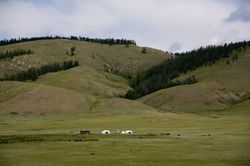 Located in Mongolia, Sacred Binder Mountain and its associated cultural heritage sites, are inseparable part of the Khentii mountain range. Unlike Mount Nimba, this mountain range which truly embodies all the correct principles of a well protected and sustainable world heritage site. A list of each of five sustainable principles and corresponding descriptions relative to Binder Mountain are indicated below: Collaboration: Sacred Binder Mountain and its association with several international organizations demonstrate an outstanding example of an evolving sacred cultural landscape which, through sustainable land-use practices has helped this site evolved from prehistoric origins in harmony with its current natural landscapes. Balance between the community and tourism: Today, many Mongolian herders live around the area of sacred Binder Mountain are still experiencing the culture, way of life, custom and traditional craftsmanship technique, traditional performing arts and festive events left by their ancestors. This lifestyle has influenced an influx of tourism. Although the local economies welcome an array tourists each year, many of the local tribes have implemented procedures as to limiting tourists from having full access to its sacred boundaries and practices. Such actions help the communities maintain the flow of tourism as well as preserving its ancestry. Bringing the site and programs to life: The worshiping tradition and practices of sacred Binder Mountain and its surrounding sacred sites and associated monuments and cultural places represent a unique fusion between the religions of Shamanism and Tibetan Buddhism. With these religions, Binder Mountain comes to life as people come from all over the world to interchange with its abundant spiritual freedom and expression. Focusing on authenticity and quality: Comparing sacred Binder Mountain with other sacred or worshiped mountains, there are several similar characteristics and cases. All of them reflect persistent and unique traditions of worship over the past several hundred years. Furthermore, all these sacred mountains represent a symbol of national identity and the spiritual homeland of those nations and countries and civilizations within which these sacred mountains are located. This is very true to Sacred Binder Mountain as well as it has a deep association with the nomadic people and their shamanistic beliefs which later became Mongolian Buddhism. Efforts are taken to preserve and protect resources: By virtue of its isolated settings within the environment and its partial inclusion in a national strictly protected area, the Sacred Binder Mountain and have suffered little from human adverse impact over the years. Nevertheless effective efforts of conservation and preservation within its areas have helped Sacred Binder Mountain stay in its original form. http://whc.unesco.org/en/tentativelists/5777/ |
JUSTIN COWANAs a travel enthusiast and ambassador I have always had a passion for equality and helping others. Archives
April 2013
Categories
All
|
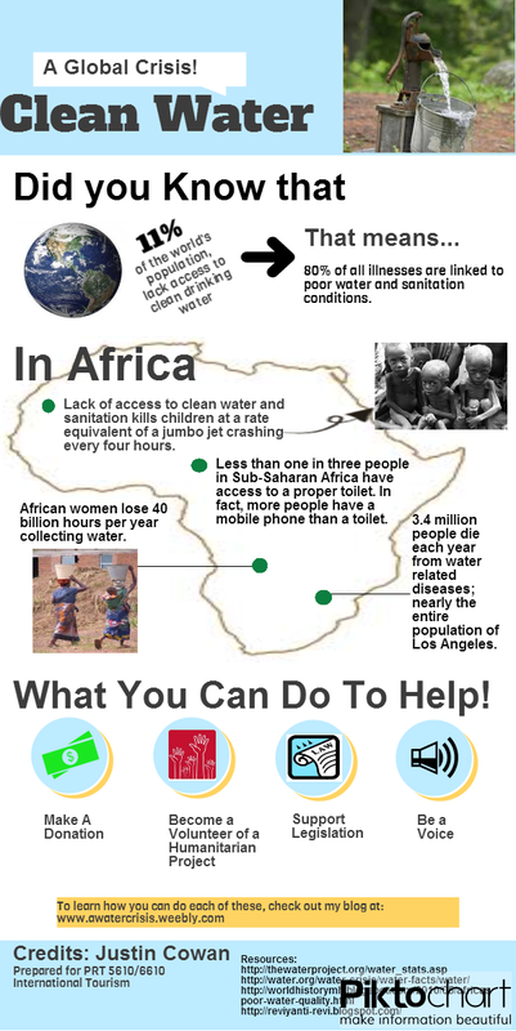
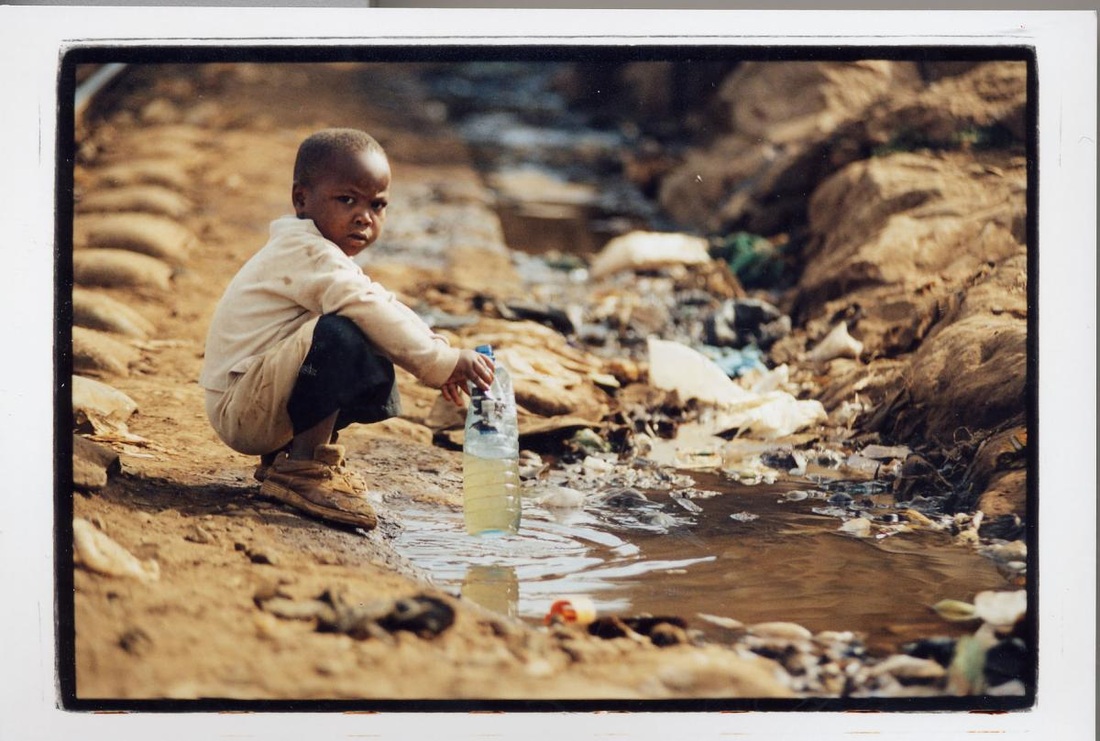
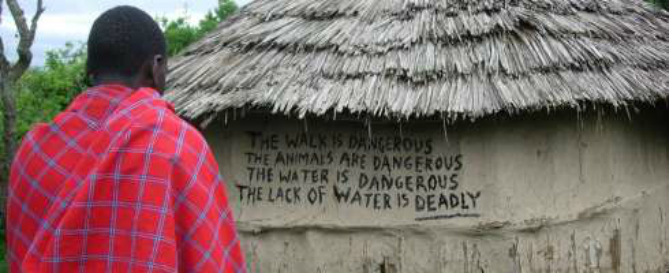

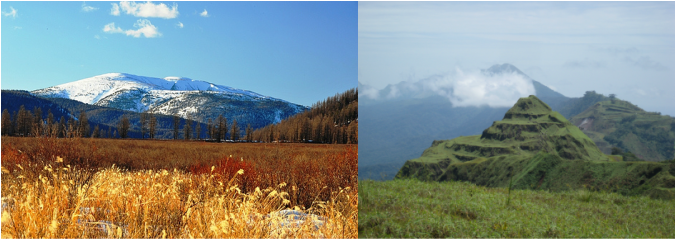


 RSS Feed
RSS Feed
